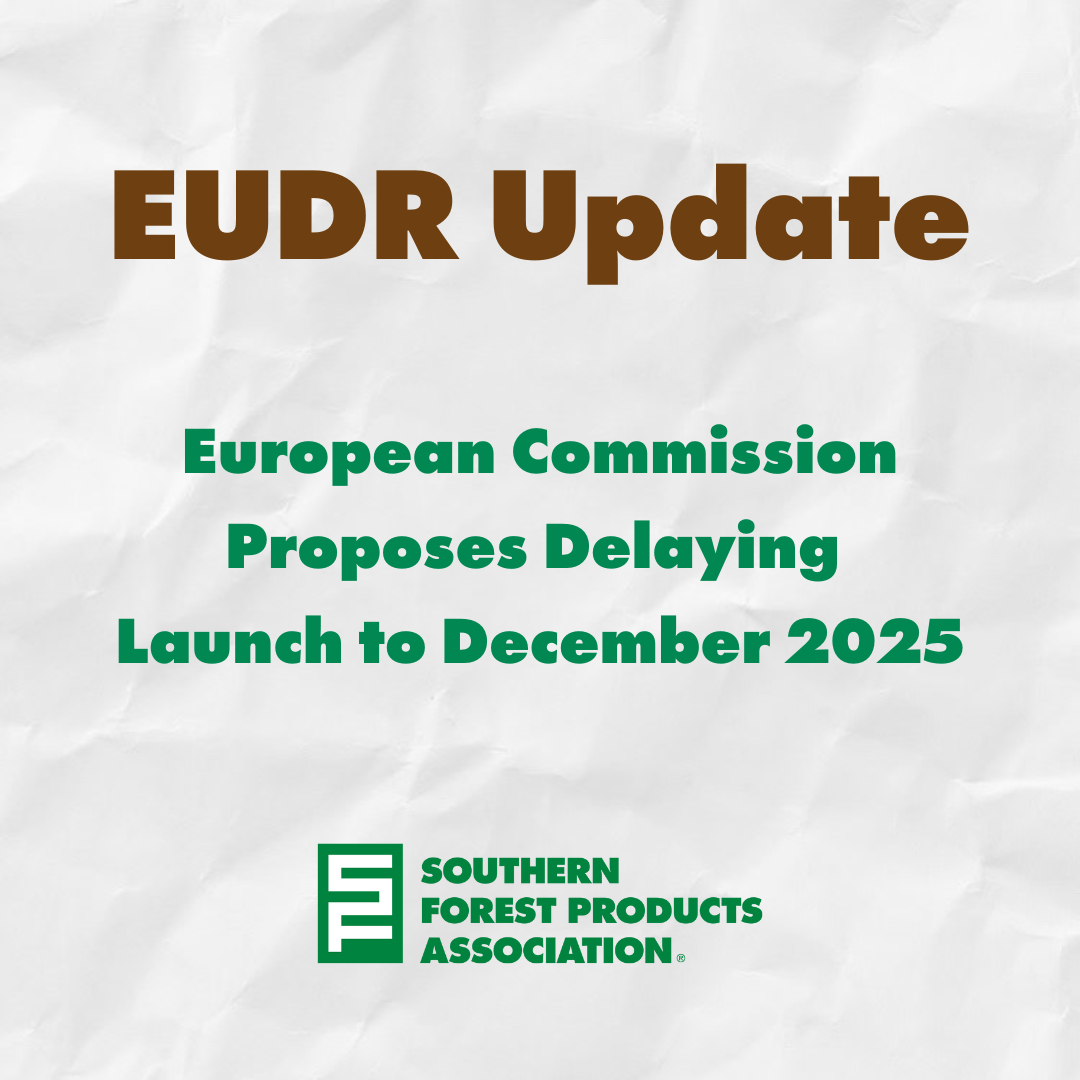Given feedback from international partners about their state of preparations, the European Commission announced October 2 that it’s proposing to delay launching the EU Deforestation Regulation (EUDR).
If approved by the European Parliament and the Council, the EUDR would go into effect December 30, 2025, for large companies and June 30, 2026, for micro- and small enterprises.
The Commission recognized in a media release several global partners have repeatedly expressed concerns about their state of preparedness three months ahead of the intended implementation date. It also shared the state of preparations amongst stakeholders in Europe is also uneven.
Since all the implementation tools are technically ready, the Commission said it considers a 12-month extension of EUDR implementation as a balanced solution to support operators around the world in securing a smooth implementation. The Commission stressed that the proposed extension does not put into question the objectives or the substance of the law, as agreed by EU co-legislators.
The Commission also published updated guidance documents, which can be found here, and a stronger international cooperation framework, which you can learn more about by clicking here, to support global stakeholders, member states, and third countries in implementing the EUDR. The new guidance aims to provide additional clarity to companies and enforcing authorities to facilitate the application of the rules.
Additional EUDR Implementation Guidance
The new guidance provides a reference to the recent collaborative efforts involving stakeholders and authorities to help ensure uniform interpretation of the law.
Key areas covered include details on the functionalities of the information system, updates on penalties, and clarifications on critical definitions such as “forest degradation,” “operator” in the scope of the law, and “placing on the market.” The new documents include further guidance on traceability obligations.
The guidance is divided into 11 chapters covering a range of issues such as legality requirements, timeframe of application, agricultural use, and clarifications on the product scope. All of these are supported by tangible scenarios.
Micro- and small companies benefit from a lighter regime, which is also detailed on a new dedicated webpage.
Transparent Country Benchmarking
The Commission also published the methodology principles it will apply to the EUDR benchmarking exercise to classify countries as low, standard, or high risk. The intent is to facilitate operators’ due diligence processes and enable competent authorities to effectively monitor and enforce compliance.
Following the methodology applied, a large majority of countries worldwide will be classified as “low risk’.” This will allow focusing collective efforts where deforestation challenges are more acute.
To help ensure smooth implementation worldwide, the Commission and the European External Action Service are presenting a strategic framework for international cooperation engagement on the EUDR. It identifies five priority areas of action, such as support to smallholders, eight key principles such as a human rights-centered approach, and several implementation tools including dialogue and financing.
This framework aims to promote a just and inclusive transition to deforestation-free agricultural supply chains. While the EU will step up dialogue and support even further, the partnership’s success will also rest on EU partners’ commitment to deliver on global targets to halt deforestation.
Dedicated IT system
The information system where businesses will register their due diligence statements is ready to start accepting registrations in early November and is scheduled to be fully operational in December.
Operators and traders can register and submit due diligence statements before the EUDR goes into effect.
Since the system’s pilot testing with 100 companies in January, the Commission put in place several additional measures, including:
- Creating a single point of contact for IT support.
- Development of an interface that allows machine-to-machine connections to the system,
without the need for manual data input (more than 250 private stakeholders are developing this feature on their side.)
- Support to test the geolocation files of stakeholders and provide feedback.
- Videos and detailed multilingual user instructions about the system.
- Training for interested stakeholders: the first session took place in Brussels on September 25, and online training will take place in the second half of October.
Next Steps
The Commission considers that the necessary conditions for smooth implementation will be fulfilled:
- Today’s additional guidance documents will complete the wealth of support available to producers, trading organizations, and partner countries in their preparations to implement the regulation, while the Commission remains committed to continuing dialogue and engagement as necessary.
- Companies and other stakeholders are invited to complete their connections, testing, and training for the use of the IT System.
- The Commission is intensifying dialogues with most concerned countries, which will feed into the speedy finalization of the country benchmarking system through a proposed Implementing Act by 30 June 2025.
- The Commission invites the European Parliament and the Council to adopt the proposal for an extended implementation period by the end of the year.
EUDR Background
The EUDR aims to ensure a set of key goods placed on the EU market will no longer contribute to deforestation and forest degradation in the EU and elsewhere in the world.
Deforestation and forest degradation are important drivers of climate change and biodiversity loss — the two key environmental challenges of our time. The Food and Agriculture Organization of the United Nations (FAO) estimates that 420 million hectares of forest — an area larger than the European Union — were lost to deforestation between 1990 and 2020. Based on 2015–20 deforestation rates, the world is losing more than nine times the forest surface of Brussels’ Bois de la Cambre every hour, or three times the surface of the Parc Léopold bordering the European Parliament in Brussels every minute.
The co-legislators adopted the law in 2023 with overwhelming majorities both in the Parliament and in the Council. As part of the preparation of its 2021 proposal, the Commission conducted a public consultation that attracted the second largest number of responses (almost 1.2 million), with the vast majority of stakeholders supporting an ambitious approach including mandatory due diligence.
